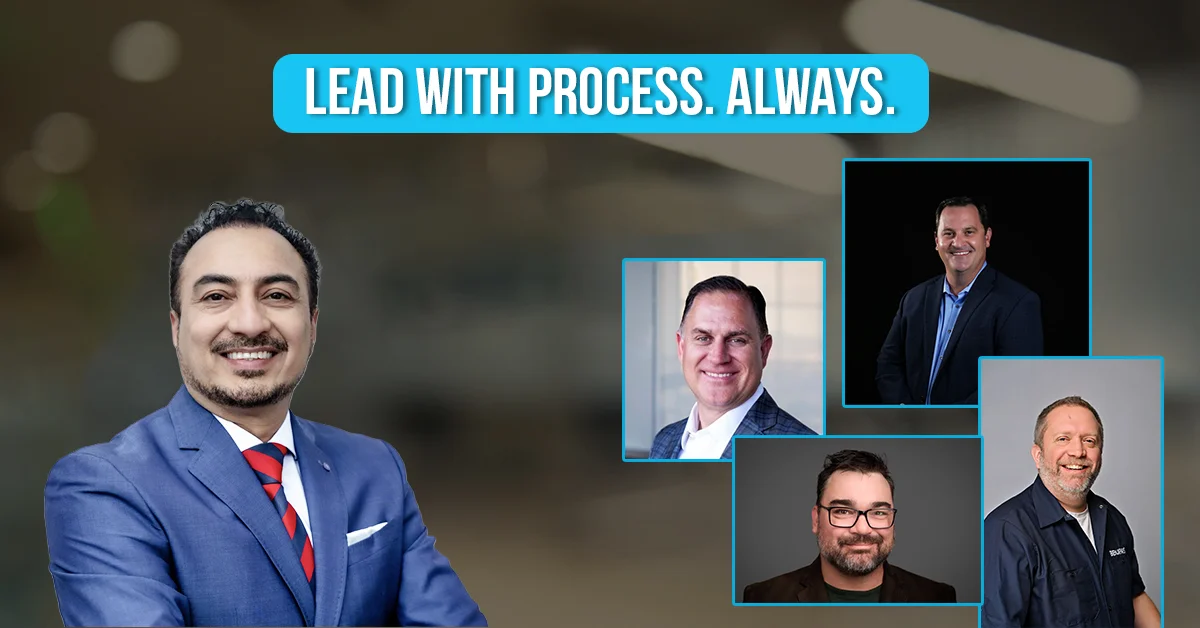Companies are constantly seeking innovative ways to attract, retain and leverage skilled professionals to maintain a competitive edge. One strategy that is revolutionizing the tech industry is the hiring of remote engineers. Embracing a remote workforce can offer unprecedented benefits, from access to a global talent pool to significant cost savings and enhanced productivity.
In this blog, we will explore how hiring remote engineers can transform your business with the insights of suitable skills you require, pros and cons of hiring remote engineers into your team.
What are remote engineers?
Remote engineers are professionals who work outside the traditional office environment, often from home or co-working spaces. Enabled by digital communication tools, cloud-based platforms, and collaborative software, they perform engineering duties remotely. This setup allows companies to access a global talent pool, bringing in specialized skills not locally available.
Employing remote engineers reduces overhead costs, offers operational flexibility, and often leads to higher job satisfaction and productivity. By utilizing remote engineers, you can enhance operations and maintain a competitive edge.
Skills you should look for in a remote engineer
When hiring remote engineers, it’s essential to focus on skills that ensure they can effectively support your MSP business. Here are the key skills to look for:
Technical proficiency
Network management: Expertise in configuring and managing networks, ensuring security protocols are upheld, and troubleshooting network issues.
Server management: Strong background in managing both Windows and Linux servers, including setup, configuration, and ongoing maintenance.
Cloud computing: Experience with major cloud platforms like AWS, Microsoft Azure, and Google Cloud, including migrating and managing cloud services.
Virtualization: Knowledge of virtualization tools such as VMware and Hyper-V to manage and optimize virtual environments.
Cybersecurity: Advanced understanding of cybersecurity practices, including threat assessment, firewall management and data protection strategies.
Backup and disaster recovery: Proficiency in backup solutions and disaster recovery planning to ensure business continuity for clients.
Soft Skills
Communication: Excellent written and verbal communication skills to facilitate seamless interaction with remote teams and clients.
Problem-solving ability: Strong analytical skills to quickly diagnose and resolve technical issues.
Time management: Effective self-management and organizational abilities to handle tasks and meet deadlines independently.
Adaptability: Capacity to quickly adapt to new technologies, tools and working conditions.
MSP-specific skills
RMM (remote monitoring and management): Proficiency with RMM tools like ConnectWise, Kaseya, or SolarWinds for efficient remote monitoring and client system support.
PSA (professional services automation): Experience with PSA tools such as Autotask or ServiceNow to optimize service delivery and manage projects effectively.
Client management: Strong interpersonal skills to interact with clients, understand their needs and provide high-quality service.
Adherence to SLA (service level agreement): In-depth understanding of SLAs and a commitment to meeting or exceeding service expectations.
Additional Skills
Scripting and automation: Knowledge of scripting languages like PowerShell, Python, or Bash to automate routine tasks and enhance efficiency.
Documentation: Ability to maintain thorough and accurate documentation of systems, processes, and procedures.
Continuous learning: Commitment to ongoing professional development and staying up to date with the latest industry trends and technologies.
How to hire and manage your remote engineers
Hiring and managing remote engineers effectively is crucial for ensuring your success. Here’s a comprehensive guide to help you navigate this process:
-
Hiring Remote Engineers
Define your needs
- Identify required skills: Clearly outline the technical and soft skills needed for the role, focusing on MSP-specific skills such as network management, cybersecurity, and client interaction.
- Set clear job descriptions: Create detailed job descriptions that specify roles, responsibilities, and expectations. Highlight remote working conditions and any specific tools or platforms the engineer will use.
Source qualified candidates
- Use specialized platforms: Utilize job boards and platforms that cater to tech professionals, such as LinkedIn, GitHub, and Stack Overflow.
- Partner with master MSP for hiring: Collaborate with talent providers specializing in remote IT staffing, like IT By Design, to find pre-vetted, qualified candidates.
- Leverage your network: Use your professional network to find potential candidates through referrals and recommendations.
Evaluate candidates
- Technical assessments: Implement technical tests and practical assessments to evaluate candidates’ skills and problem-solving abilities.
- Behavioral interviews: Conduct interviews to assess soft skills, including communication, time management and adaptability.
- Cultural fit: Ensure candidates align with your company’s values and work culture, which is particularly important for remote roles.
Onboard effectively
- Comprehensive orientation: Provide a thorough onboarding process that covers company policies, team introductions, and an overview of systems and tools.
- Access to resources: Ensure new hires have access to all necessary resources, including software, hardware, and documentation.
-
Managing remote engineers
Set clear expectations
- Define objectives: Establish clear, measurable goals and objectives for your remote engineers to ensure alignment with the company’s strategic goals.
- Regular check-ins: Schedule regular meetings to discuss progress, address any concerns and provide feedback.
Utilize effective tools
- Communication tools: Use tools like Slack, Microsoft Teams, or Zoom for seamless communication and collaboration.
- Project management software: Implement project management tools like Asana, Trello, or Jira to track tasks, deadlines, and progress.
- Performance monitoring: Employ performance monitoring tools to track productivity and ensure engineers are meeting their targets.
Foster a collaborative environment
- Encourage team interaction: Promote regular interaction among team members through virtual meetings, team-building activities, and collaborative projects.
- Provide support: Ensure engineers have access to necessary support, whether it’s technical assistance, peer support, or management guidance.
Offer professional development
- Training opportunities: Provide ongoing training and development opportunities to keep engineers’ skills up to date with the latest industry trends and technologies.
- Certifications: Support engineers in obtaining relevant certifications that enhance their skills and value to the company.
Maintain work-life balance
- Flexible working hours: Offer flexibility in working hours to accommodate different time zones and personal commitments.
- Encourage breaks: Promote a healthy work-life balance by encouraging regular breaks and time off to prevent burnout.
Pros and cons of having a team of remote engineers
Embracing remote talent can offer substantial advantages, from accessing a broader talent pool to reducing overhead costs. However, it also presents unique challenges that require careful consideration and management.
Here’s some pros and cons of having a remote engineering team for your MSP business:
Pros of remote engineering team
- Cost Savings: Save on office space and utilities with flexible, globally competitive rates for skilled engineers.
- Global talent pool: Gain innovative solutions and specialized skills not available locally from a diverse global team.
- Flexibility: Adjust team size easily and utilize different time zones for 24/7 support and continuous coverage.
- Increased productivity: Engineers work in a focused environment with flexible hours, promoting better work-life balance and boosting efficiency.
- Enhanced job satisfaction: Better work-life balance improves retention and job satisfaction.
Cons of remote engineering team
- Communication hurdles: Coordinating across different time zones can be challenging, and less face-to-face interaction may lead to communication issues.
- Management challenges: Monitoring and guiding remote talent is harder, making it challenging to ensure deadlines and performance without direct supervision.
- Integration issues: Integrating remote engineers into your existing culture can be tough, and remote setups might hinder spontaneous teamwork.
- Security concerns: Securing sensitive information and complying with regulations require strong measures when more people can access your network remotely.
- Technical problems: Internet issues can disrupt productivity, and ensuring remote tools are compatible with your systems is crucial.
How IT By Design’s remote engineers are the right fit for you
For over two decades, IT By Design has provided MSPs with top global talent. Hiring any of our remote engineers means accessing professionals who have trained to immediately start contributing to the success of your MSP business.
Here’s what you can expect:
- Expert training: Our engineers are trained through our intensive 60-day MSP Way Boot Camp on your tool stack and adopting a customer-centric approach.
- Fast and cost-effective hiring: Secure top talent quickly with no recruitment fees, while we handle payroll and benefits.
- Comprehensive support: We manage each engineer, ensuring effective collaboration and ongoing career development.
- Flexible solutions: Build your ideal team with adaptable hiring processes tailored to your needs.
- Dedicated oversight: A dedicated manager supports seamless integration and ongoing assistance for each engineer.
Connect with us today to discover how our remote MSP engineers are the answer to your talent needs.








